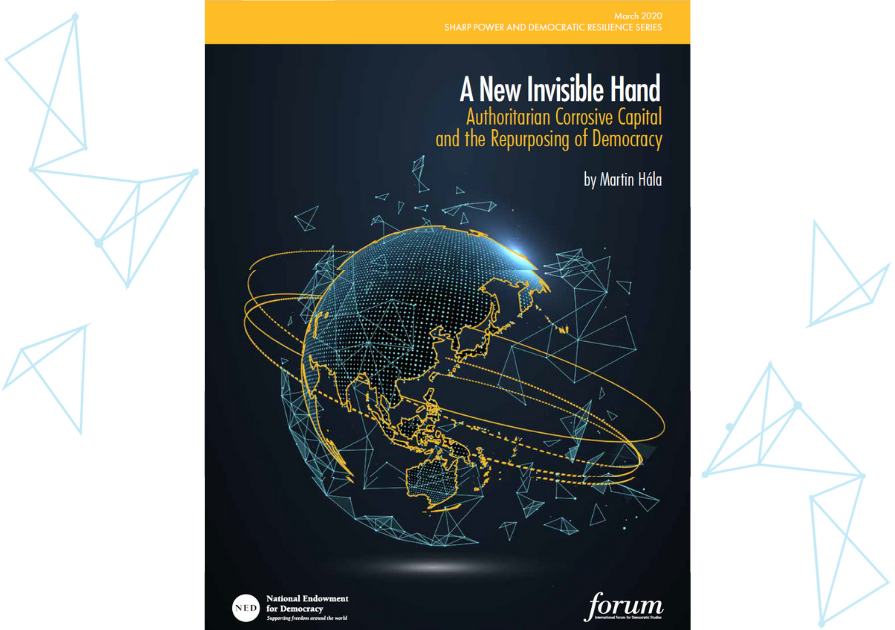For full publication and background please visit this link
This report explores the issue of corrosive capital—or capital flows from authoritarian regimes that undermine democratic processes and institutions in the receiving countries—and outlines what an interconnected, interdisciplinary response from civil society could look like. Illiberal regimes like those in China and Russia use capital as a foreign policy tool and often as a form of strategic corruption to bolster authoritarianism as a globally competitive governance system. The legacy of one Chinese firm’s engagement in the Czech Republic vividly illustrates how corrosive capital from technically private companies can be leveraged by authoritarian regimes to undermine democratic institutions in target countries. Without strong accountability, transparency, and oversight mechanisms, the adverse impacts of such sharp power can go unnoticed and unchallenged. As a critical and distinguishing feature of free and open societies, civil society has an important role to play in fostering democratic inoculation to authoritarian corrosive capital.
“Authoritarian corrosive capital typically hides amid layers of larger exchanges with authoritarian regimes, the majority of which may appear legitimate and can have a financial, political, or cultural character.”
Key Ideas
- Corrosive capital and strategic corruption differ from other forms of corruption in that they are backed, and sometimes orchestrated, by a state power for political rather than economic goals—or to advance a comprehensive authoritarian agenda with inseparable political and economic objectives.
- The Chinese Communist Party, and the Kremlin in a less formalized manner, have strengthened mechanisms of control over private and state-owned enterprises in an effort to use businesses to achieve domestic and foreign policy goals.
- Elite cooptation through corrosive capital ultimately repurposes the institutions overseen by captured leaders to serve the outside authoritarian power’s goals. With relatively modest “investments”—often a combination of direct benefits for key individuals and questionable loans that use local resources as collateral—an authoritarian power can penetrate and corrode the institutional framework of democratic rule from the top down.
- Civil society has an important role to play in an effective defense against corrosive capital, particularly in settings where the other pillar of resilience, democratic governance, suffers from large-scale elite capture and repurposed institutions are at risk of failing to safeguard the integrity of the political system and the national interest.
- Local collaboration should be supplemented with cross-border cooperation among knowledge hubs and individual researchers working on the same issue areas. Corrosive capital is, by definition, a transnational phenomenon and it can only be understood through active collaboration among partners in various countries.
The first report in this series, written by Edward Lucas, explores how the leading authoritarian regimes have exploited democratic norms and transformed the market for information into a dangerous tool to exert antidemocratic sharp power
Published Date: April 01, 2020

